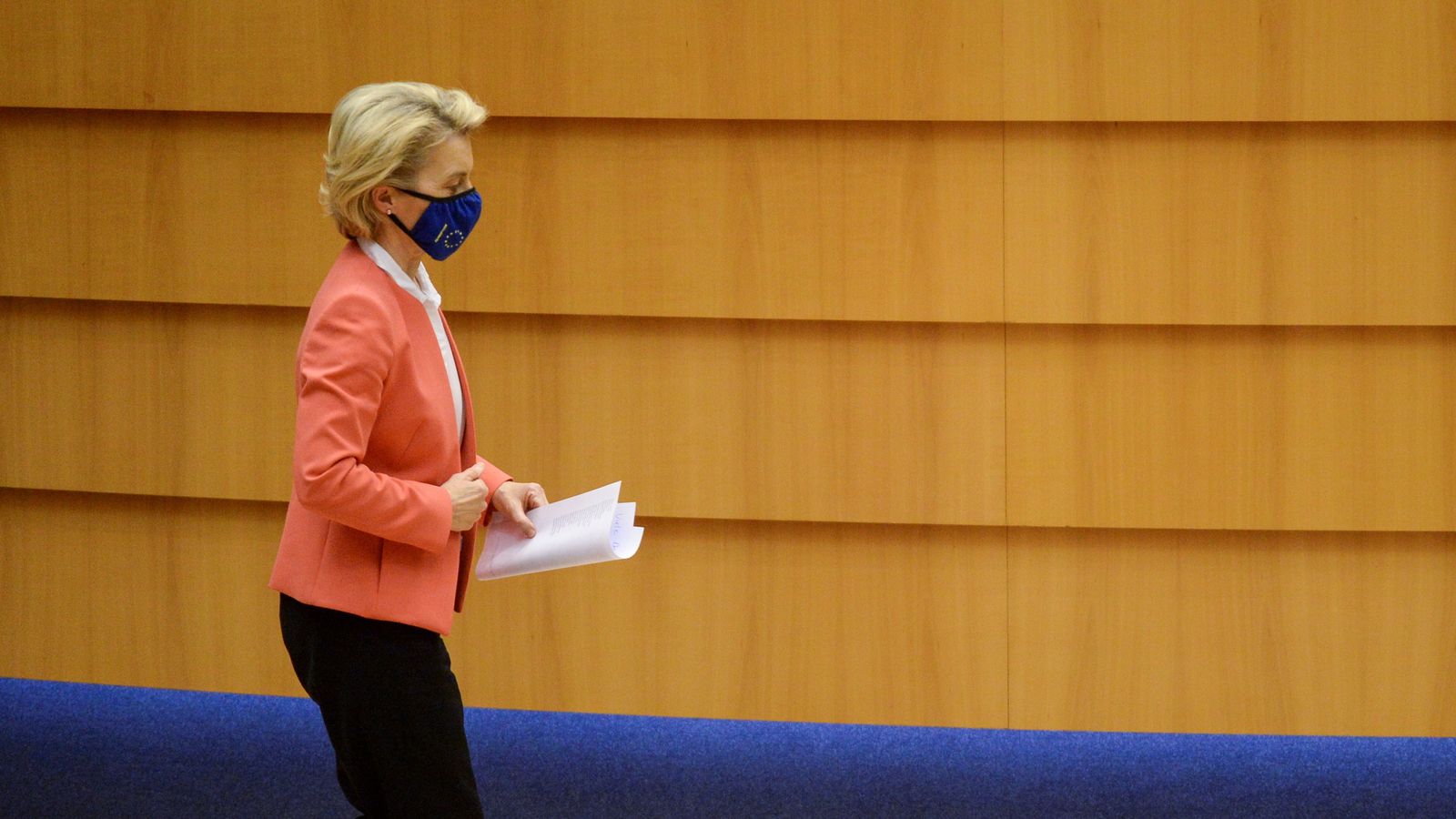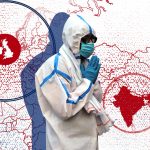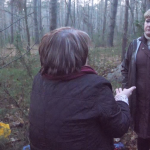The European Commission’s first female president has blamed sexism for the “sofagate” debacle in Turkey earlier this month.
Ursula von der Leyen was left without a chair during a meeting in Ankara with Turkey‘s President Tayyip Erdogan on 6 April.
Ms Von der Leyen said that the incident only happened because she is a woman.
“I cannot find any justification for how I was treated, so I have to conclude that it happened because I am a woman,” she said during a speech to the European Parliament earlier today.
Video footage of the meeting showed Ms von der Leyen visibly taken aback when Mr Erdogan and European Council President Charles Michel sat on the only two chairs in front of of EU and Turkey flags, forcing her to go and sit on an adjacent sofa.
She said she “felt hurt” and “alone as a woman and as a European”.
“I am the president of the European Commission, and this is how I expected to be treated when visiting Turkey, but I was not,” Ms von der Leyen said.
Please use Chrome browser for a more accessible video player
“This shows how far we still have to go before women are treated as equals – always and everywhere.”
Just days after the incident, Turkey laid the blame on the EU for “unjust accusations”.
Foreign minister Mevlut Cavusoglu said: “The protocol at the presidency met the demands of the EU side.
“In other words, the seating arrangement was designed to meet their demands and suggestions.”
Mr Michel has been criticised by many EU politicians for not intervening on Ms von der Leyen’s behalf in Ankara.
Speaking to parliament, he expressed his regret over the situation, which he said he understood offended many women.
He also told lawmakers that deeper economic ties with Turkey were difficult because of a deterioration of basic rights and freedoms, including those of women.
Mr Michel previously said he regretted not intervening in a Facebook post on 7 April.
In the post, he said: “While realising the regrettable nature of the situation, we decided not to make matters worse by creating a scene.
“At the beginning of the meeting, we resolved instead to focus on the substance of the political discussions, which Ursula and I were to embark upon with our hosts.”
The meeting was arranged as an attempt to repair relations between the European Union and Turkey.
Ties between Turkey and the EU have been strained for years over the arrival of migrants and recently over its drive for gas in the eastern Mediterranean.
After the meeting, Ms von der Leyen held out hope of revising a 2016 deal under which the EU pays Turkey to prevent large-scale migrant arrivals in Greece.






















